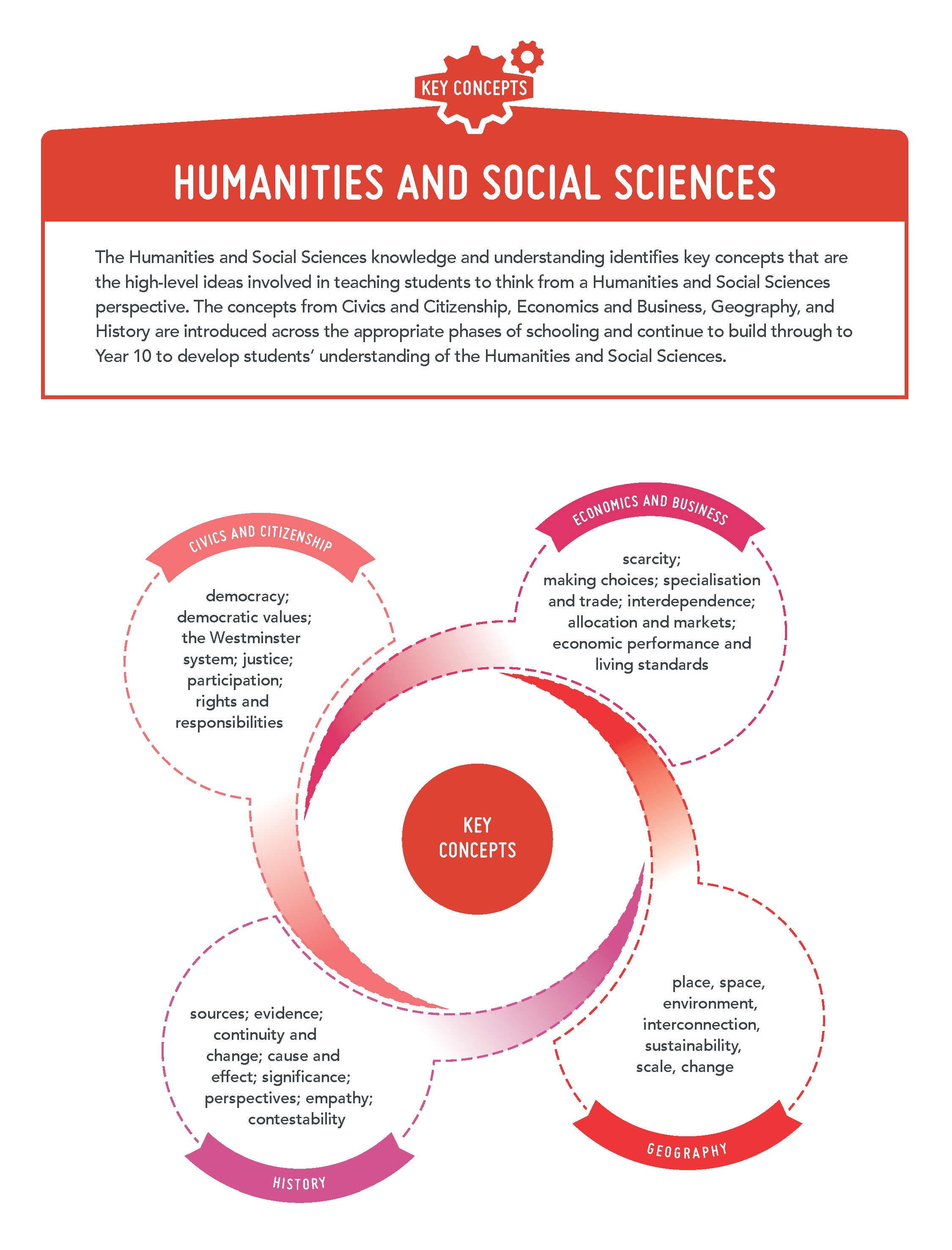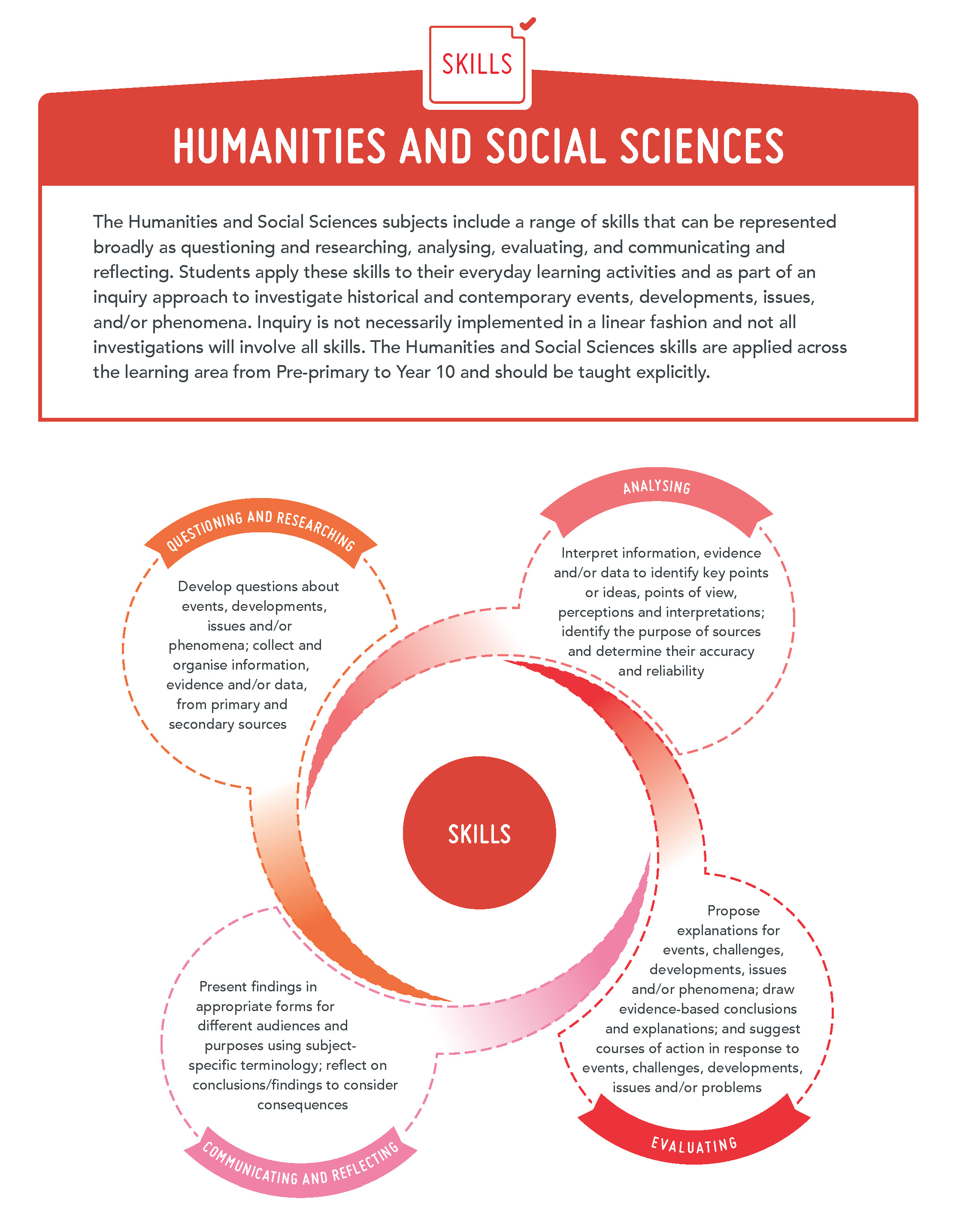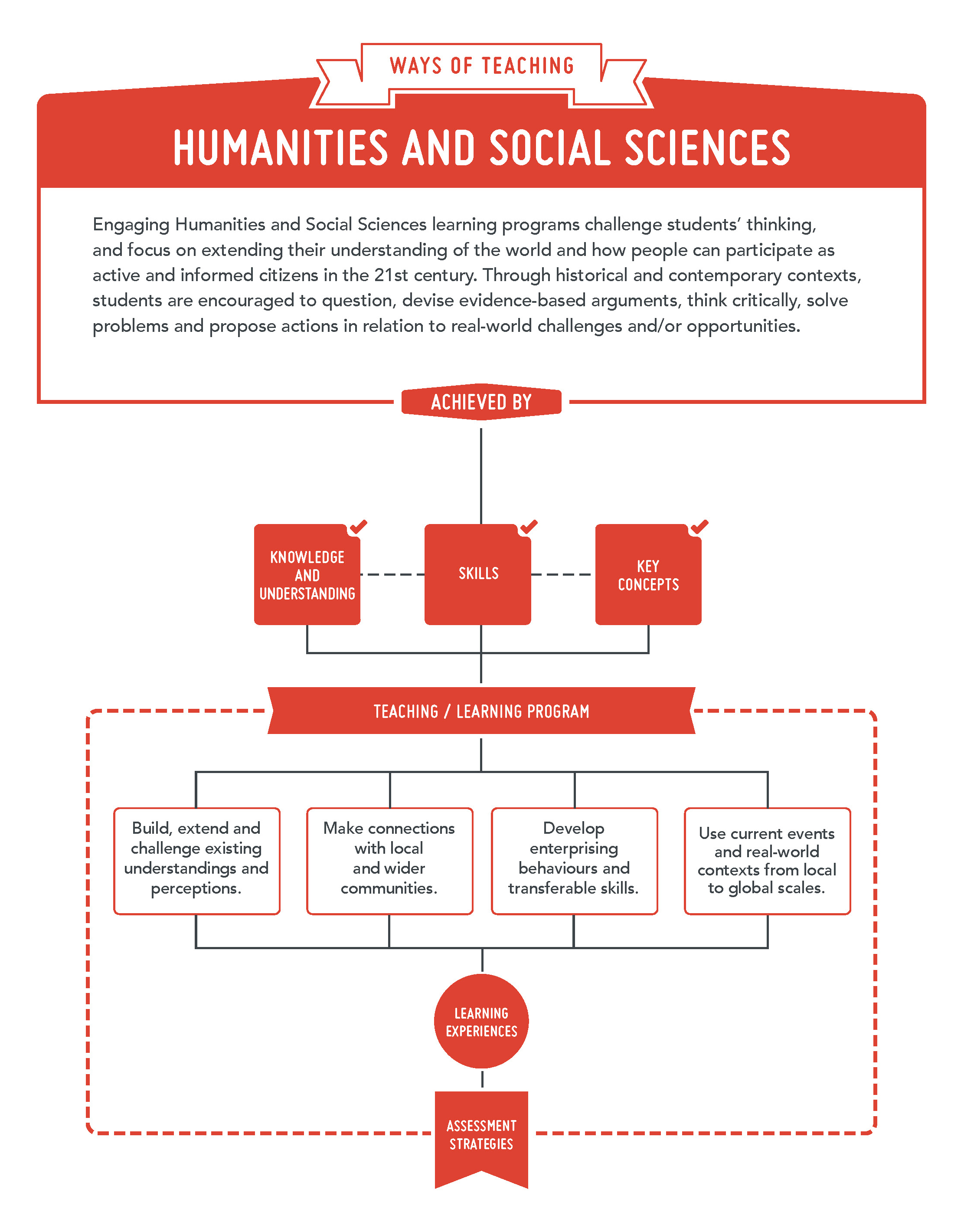General
Pre-primary to Year 10 Languages in Western Australian schools
Contact
Adriana Douglas (08) 9273 6784
Adriana.Douglas@scsa.wa.edu.au
Schools have received a letter today from the Authority’s Board Chair and Chief Executive Officer providing an update on Pre-primary to Year 10 Languages in Western Australia from 2018.
The letter can be accessed via the Authority’s website at:
http://k10outline.scsa.wa.edu.au/media/documents/communications/Correspondence-to-all-school-Languages-Curriculum_P-10.pdf
A set of Frequently Asked Questions can also be accessed via the Authority’s website at:
http://k10outline.scsa.wa.edu.au/home/resources/faqs/_nocache
P-10 Humanities and Social Sciences
Contact
Mandy Hudson(08) 9273 6755
Mandy.Hudson@scsa.wa.edu.au
Beginning to work with the new P-10 Humanities and Social Sciences Syllabuses
Within the Western Australian and Curriculum and Assessment Outline the Humanities and Social Sciences is presented as a coherent learning area consisting of Civics and Citizenship, Economics and Business, Geography and History. These subjects provide students with the knowledge, skills and key concepts necessary to think from a Humanities and Social Sciences perspective. The Learning Area Overview under the Organisation section contains graphics that will assist teachers in planning their teaching and learning programs and could also provide the focus for teacher professional learning.
Key concepts
The key concepts are the high-level ideas involved in teaching students to think from a Humanities and Social Sciences perspective.
The Authority has developed the key concepts for Civics and Citizenship and Economics and Business to complement the concepts developed for Geography and History by ACARA.
The key concepts underpin the content in each year and need to be explicitly taught. The concepts are phased in during the years of schooling, as appropriate to the content in the year level syllabuses, and continue to be developed across the years to provide students with a broad understanding of the world in which we live and how people can participate as active and informed citizens in the 21st century.
Year level descriptions provide an overview of the key concepts addressed, along with core content being studied at that year level. The key concepts inform the Achievement Standard at each year level.
In planning for the implementation of the Humanities and Social Sciences in 2017, the focus should be on interrelating the key concepts, knowledge, understanding and skills within each subject to develop teaching and learning programs and to create learning experiences for students. In 2016, the Authority will provide samples of how this can be done.

The key concepts diagram, and the explanation of each of these concepts, can be located within the Organisation section of the Humanities and Social Sciences Learning Area Overview. The link is provided below:
Skills
The Humanities and Social Sciences skills are divided into: questioning and researching; analysing; evaluating; and communicating and reflecting. They are common to all four subjects. These skills can be taught discretely and/or in conjunction with the key concepts, knowledge and understanding, or as part of an inquiry approach. Inquiry is not necessarily implemented in a linear fashion and not all investigations will involve all skills. Moreover, there may be different entry points where the skills are employed as part of an inquiry process

The Humanities and social sciences skills diagram and examples of how these skills are applied to subject specific learning experiences. can be located within the Organisation section of the Humanities and Social Sciences Learning Area Overview. The link is provided below:
http://k10outline.scsa.wa.edu.au/__data/assets/image/0008/34100/HASS_Figure2.jpg
‘Ways of teaching’
The 'ways of teaching' aims to support teachers with planning for curriculum delivery across the years of school, with the teaching in each year extending learning in previous years.
The 'ways of teaching' complement the principles of teaching and learning in the Western Australian Curriculum and Assessment Outline (http://k10outline.scsa.wa.edu.au/). The principles assist whole-school planning and individual classroom practice.
Civics and Citizenship, Economics and Business, Geography and History can be taught separately or through programs created to link to more than one subject or to link to content in other learning areas.

The Humanities and social sciences ‘ways of teaching’ diagram and examples of how to engage students in Humanities and Social Sciences can be located within the Ways of Teaching section of the Humanities and Social Sciences Learning Area Overview. The link is provided below:
Teacher Support Materials
To assist teachers and schools during the transition to full implementation of the Western Australian Curriculum for Humanities and Social Sciences in 2017, the following information will be available in the Western Australian Curriculum and Assessment Outline in 2016:
- A learning area video exploring the ‘ways of teaching’
- Sample assessment activities illustrating assessment strategies from the ‘ways of assessing’ (http://k10outline.scsa.wa.edu.au/home/p-10-curriculum/curriculum-browser/humanities-and-social-sciences/humanities-overview/ways-of-assessing) for Pre-primary to Year 10
- Judging Standards Materials to support teacher judgements for reporting, including annotated student work samples and assessment pointers for Pre-primary to Year 10.
